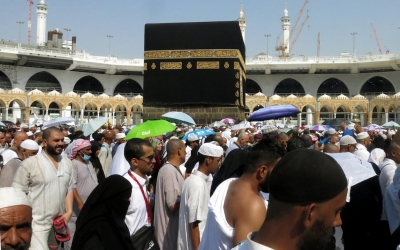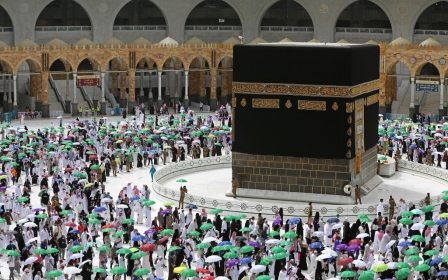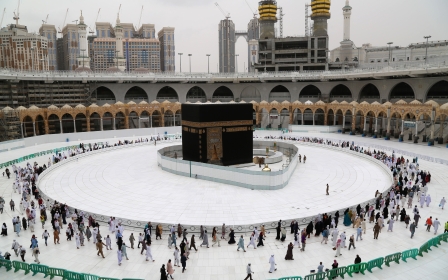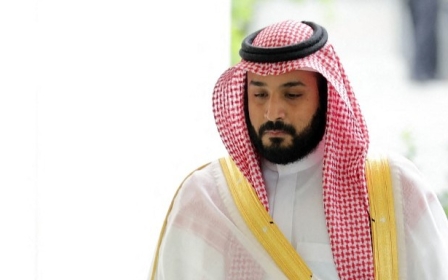Hajj: Iran's supreme leader says Mecca is for all Muslims, not for Saudis
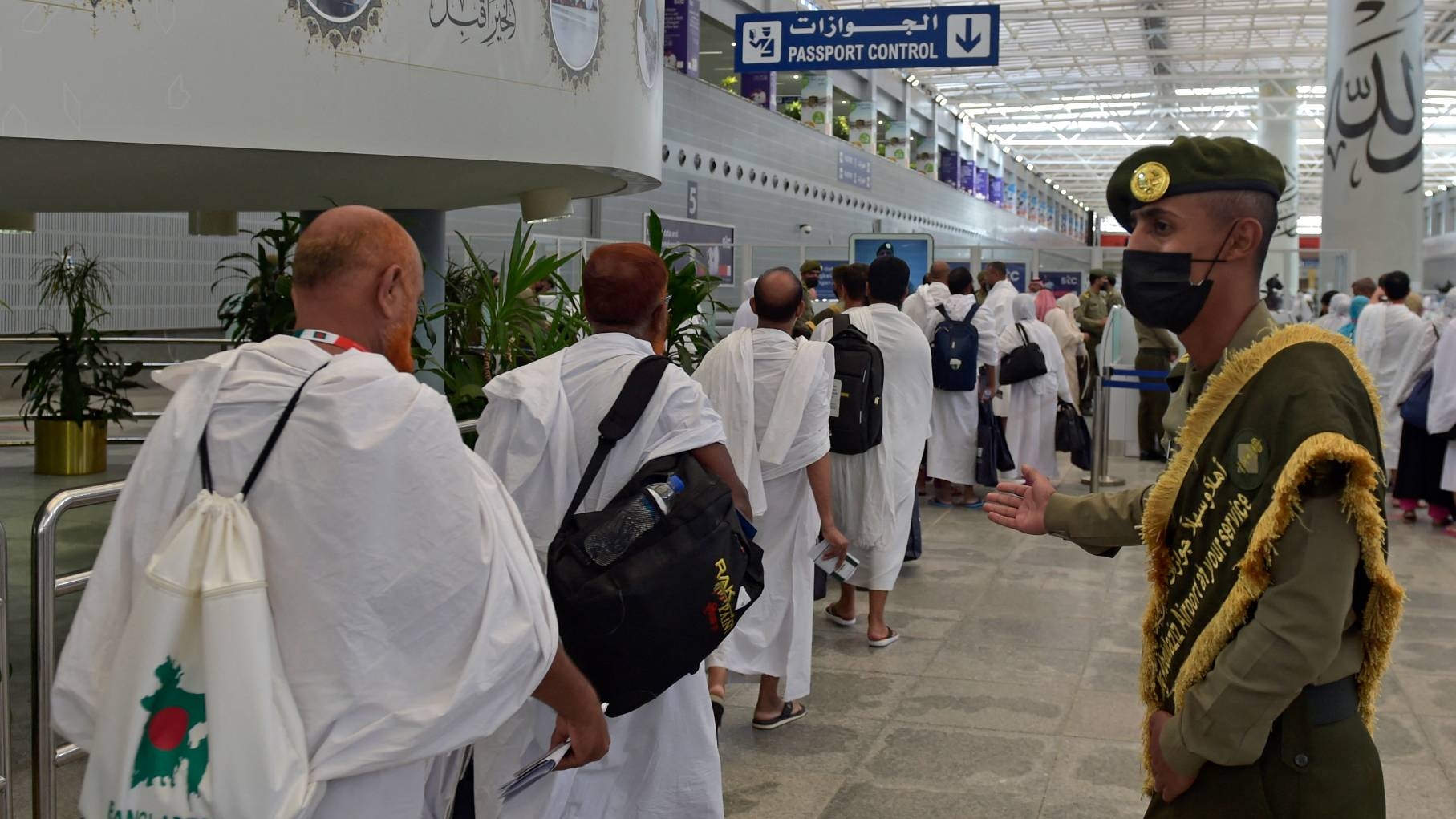
Iran's Supreme Leader Ali Khamenei called on Saudi authorities on Wednesday to ensure the security of all pilgrims and Iranians visiting Mecca to perform Hajj in June, saying that the sacred house of Kaaba belongs to the people.
Muslims from all around the world arrived in Mecca this week to perform the annual ritual of Hajj, which started on Tuesday and lasts until 12 June.
This is the first time since the Covid-19 pandemic began two years ago that Saudi Arabia has allowed non-Saudi Muslims to perform Hajj.
Khamenei spoke to Iranian officials running the Hajj convoys on Wednesday and said Saudi Arabia "bears heavy responsibilities," managing the Hajj and is "bound to maintain security," and prevent tragedies among pilgrims.
"There are heavy responsibilities on the shoulders of the country hosting the pilgrimage, Mecca is not for them, Mecca is for all," he said about Saudi Arabia.
"In the end, there is a state that has governance and manages things there, so it must act in the interest of the Islamic world and not in its own interest," he added.
Khamenei told the Iranian officials "to avoid delving into the points of difference between the Shiites and Sunnis".
He demanded that Saudi authorities provide security to all visitors from the Islamic world and ensured the safety of Iranian pilgrims in particular.
"They are bound to do so. They are bound to maintain this security and not to allow the horrors of the past to be repeated," he said.
Over 450 Iranian pilgrims were killed in a stampede during the 2015 Hajj in Mecca, and Iranian officials at the time accused Saudi authorities of mismanagement that led to the disaster.
'Good news'
Khamenei later tweeted that allowing Muslims from outside Saudi Arabia to perform Hajj this year, following the lifting of Covid-19 restrictions, was a piece of good news.
"God reopened the door for Hajj. This is a divine invitation opening the way to the Hajj pilgrims. This is not a favor from anyone; it is God's acceptance of the respected pilgrims [and] your enthusiasm. God willing, you will have a good Hajj," he tweeted, adding that "Hajj teaches coexistence".
Saudi's Ministry of Hajj and Umrah announced this week that the number of pilgrims had reached one million. All pilgrims must be under 65-years-old, fully vaccinated against Covid-19, and show a negative antigene test within 72 hours of reaching Saudi Arabia.
On Thursday, the ministry warned Saudis of scammers and fraudsters who pretend to provide Hajj services at low prices in order to collect personal and financial information and then demand money transfers for fake services.
Domestic pilgrims have still until 11 June to register for Hajj through the official Eatmarna app, which lists approved institutions that deliver Hajj services for Saudis.
"We know that there are many requirements to perform Hajj for this year," Tawfiq Al-Rabiah, the Minister of Hajj and Umrah told local media last week. "But the safety of pilgrims and their safe return to their countries remain our priorities."
Rabiah added that Saudi authorities had introduced new technology to the running of this year's Hajj.
"We were keen on using the Hajj technologies, including the pilgrims' smart ID, which we will keep implementing this year to render the transport of the visitors of Allah easier and to ensure their fast arrival to their locations and tents whether in Mina or Arafat," he said.
In 2019, there were 2.5 million Muslims worldwide who performed Hajj. However, only 1,000 Saudis performed the annual Islamic ritual in 2020 in the midst of the Covid-19 pandemic. The figure was increased to 60,000 Saudis pilgrims in 2021.
Middle East Eye delivers independent and unrivalled coverage and analysis of the Middle East, North Africa and beyond. To learn more about republishing this content and the associated fees, please fill out this form. More about MEE can be found here.


